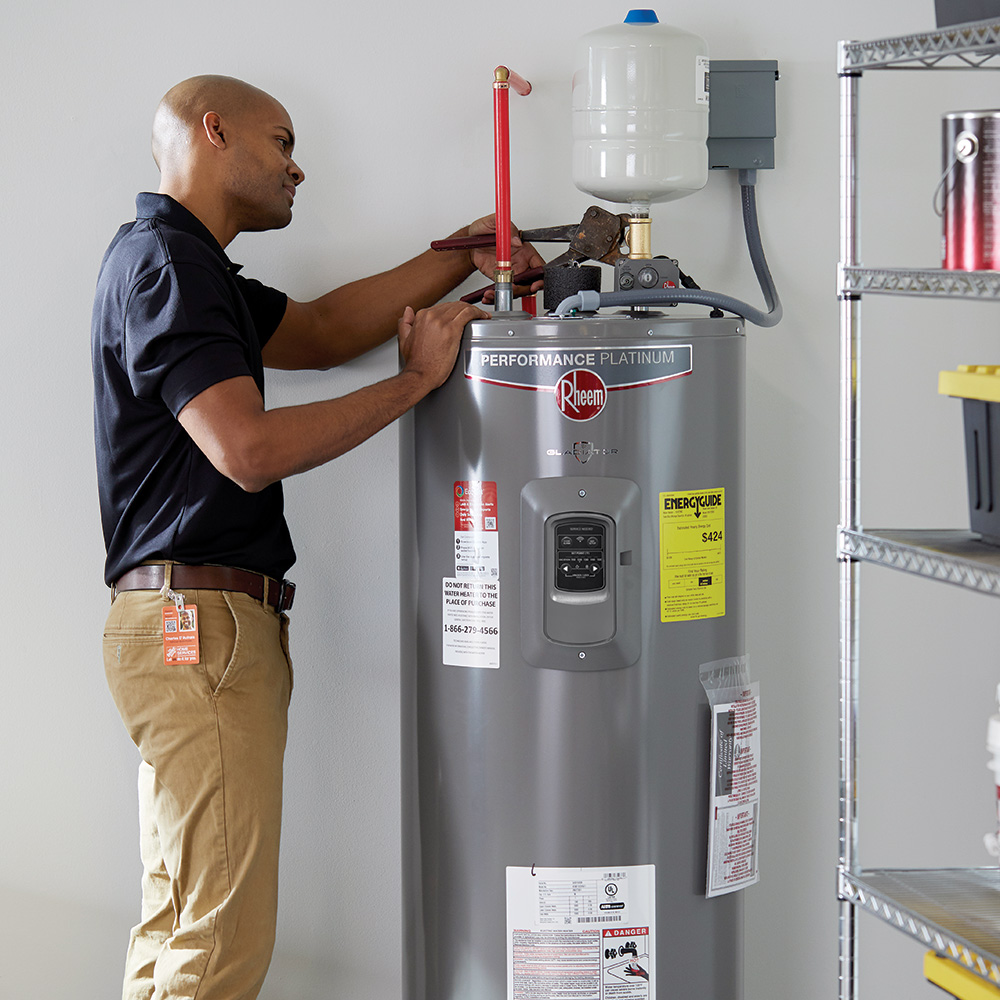General Heater Challenges And Solutions
General Heater Challenges And Solutions
Blog Article
What're your ideas on Water Heater Repair and Troubleshooting?

Picture beginning your day without your regular warm shower. That currently establishes a bad tone for the rest of your day.
Every house needs a reputable hot water heater, but only a few know how to take care of one. One easy method to keep your hot water heater in leading shape is to look for mistakes frequently and fix them as soon as they show up.
Keep in mind to switch off your water heater prior to smelling about for faults. These are the water heater mistakes you are probably to experience.
Water also warm or as well cold
Every water heater has a thermostat that establishes just how hot the water gets. If the water entering into your residence is also warm despite setting a practical maximum temperature level, your thermostat could be defective.
On the other hand, too cold water may result from a failed thermostat, a broken circuit, or incorrect gas circulation. For example, if you use a gas hot water heater with a damaged pilot light, you would certainly obtain cold water, even if the thermostat remains in ideal problem. For electric heating units, a blown fuse might be the offender.
Not nearly enough hot water
Hot water heater can be found in many dimensions, relying on your hot water demands. If you lack warm water before every person has had a bath, your water heater is also little for your family size. You should consider setting up a bigger hot water heater tank or opting for a tankless hot water heater, which occupies less area and also is a lot more sturdy.
Strange noises
There go to least five type of noises you can hear from a water heater, but the most common analysis is that it's time for the water heater to retire.
First of all, you need to know with the typical sounds a hot water heater makes. An electric heater may seem different from a gas-powered one.
Popping or banging sounds normally mean there is a piece of sediment in your storage tanks, and also it's time to clean it out. On the other hand, whistling or hissing sounds may just be your shutoffs letting some pressure off.
Water leakages
Leakages can originate from pipelines, water links, valves, or in the worst-case circumstance, the container itself. With time, water will rust the storage tank, and discover its way out. If this takes place, you require to change your hot water heater immediately.
Nonetheless, prior to your change your entire storage tank, make sure that all pipelines remain in area and that each valve works flawlessly. If you still need help identifying a leak, call your plumber.
Rust-colored water
Rust-colored water implies one of your water heater parts is rusted. It could be the anode pole, or the storage tank itself. Your plumber will be able to identify which it is.
Lukewarm water
No matter how high you set the thermostat, you will not get any kind of warm water out of a heating system well past its prime. A hot water heater's efficiency may decrease with time.
You will certainly additionally get warm water if your pipes have a cross link. This implies that when you activate a faucet, warm water from the heater flows in alongside routine, cold water. A cross connection is simple to area. If your hot water faucets still pursue shutting the water heater valves, you have a cross link.
Discoloured Water
Corrosion is a major source of filthy or discoloured water. Deterioration within the water container or a falling short anode rod might cause this discolouration. The anode rod shields the storage tank from rusting on the within and should be checked yearly. Without a pole or a properly working anode rod, the warm water quickly wears away inside the storage tank. Get in touch with a professional water heater professional to determine if replacing the anode pole will repair the trouble; otherwise, replace your water heater.
Verdict
Preferably, your hot water heater can last ten years prior to you require a change. However, after the 10-year mark, you may experience any one of these mistakes much more consistently. At this point, you must include a brand-new hot water heater to your budget plan.
How To Troubleshoot 3 Common Water Heater Problems in Twin Cities
The Water Heater Is Leaking
A leaky cold water inlet valve A loose pipe fitting A leaky temperature and pressure relief valve A corroded anode rod A cracked tank Turn Off Your Water Heater:
Shut off your gas water heater by turning the gas valve on the unit to the “OFF” position. Shut off your electric water by switching its power off at your electrical panel. Look for a two-pole breaker labeled “water heater” and turn it to the “OFF” position. Move the ball valve connected to the water heater to be perpendicular to the piping at a 90° angle. Look for the Leak:
Depending on whether the water is coming from the tank's top or bottom, you’ll want to look for the leak in different locations.
If the leak comes from the top of the tank, carefully look for water escaping from the cold water inlet valve or loose pipe fittings. Rusted hot and cold water valves can have loose connections with the tank, with water leaking out of them.
https://mspplumbingheatingair.com/blog/how-to-troubleshoot-3-common-water-heater-problems
As a keen person who reads about Water Heater Repair and Troubleshooting, I figured sharing that excerpt was really useful. Sharing is good. Helping people is fun. Bless you for your time. Don't hesitate to pay a visit to our blog back soon.
Book Your Appointment Report this page